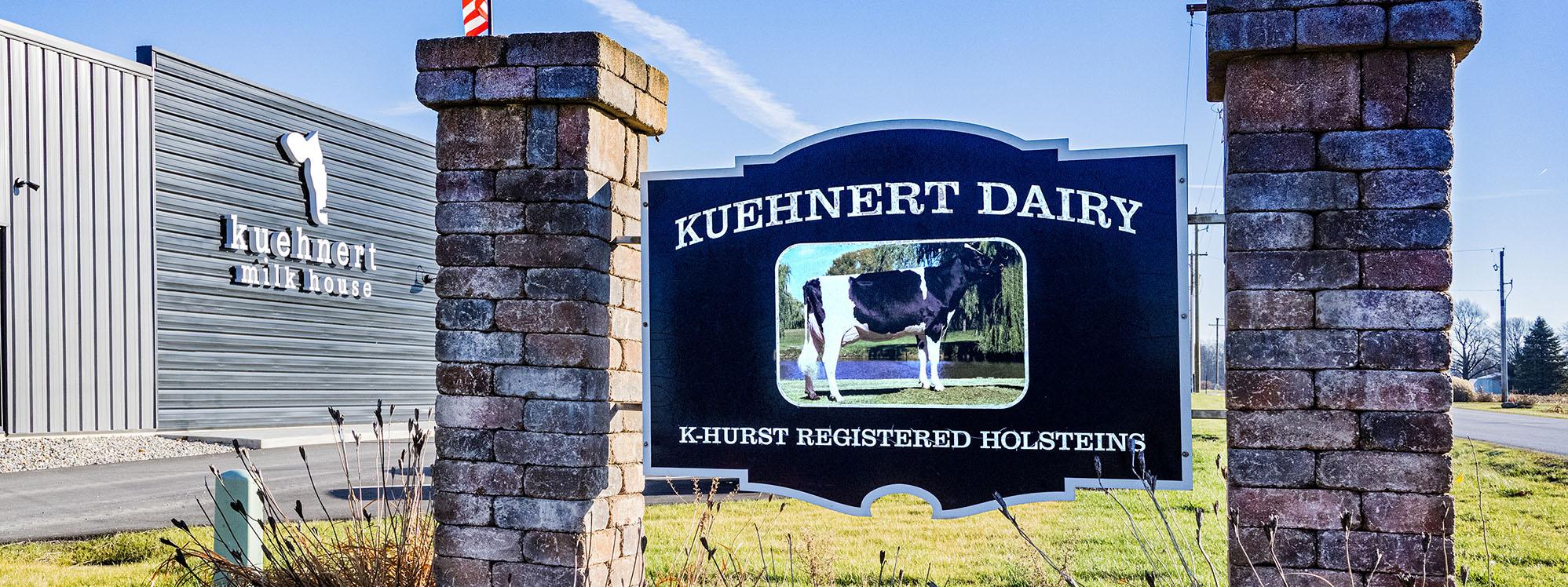
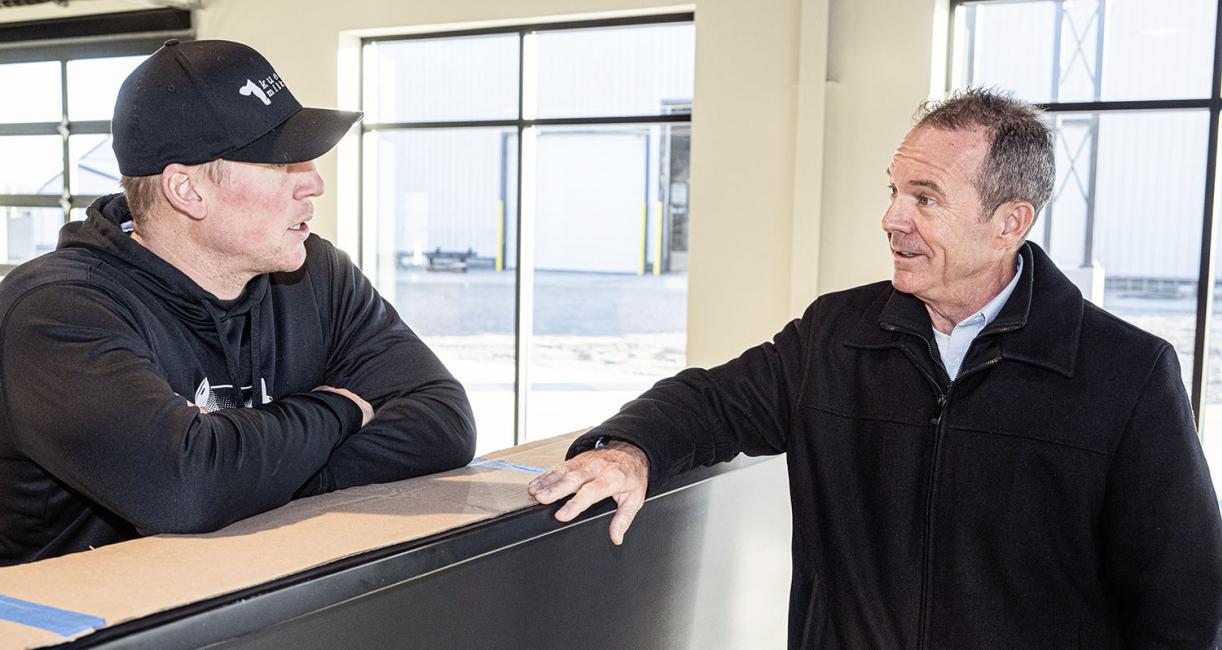
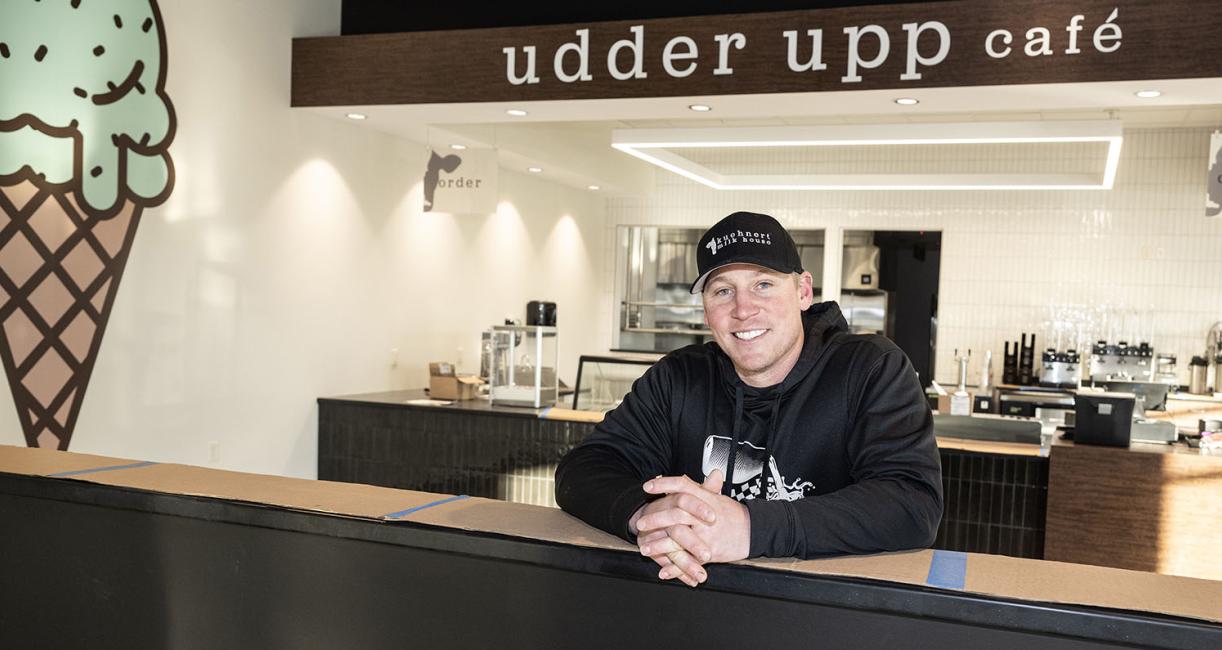
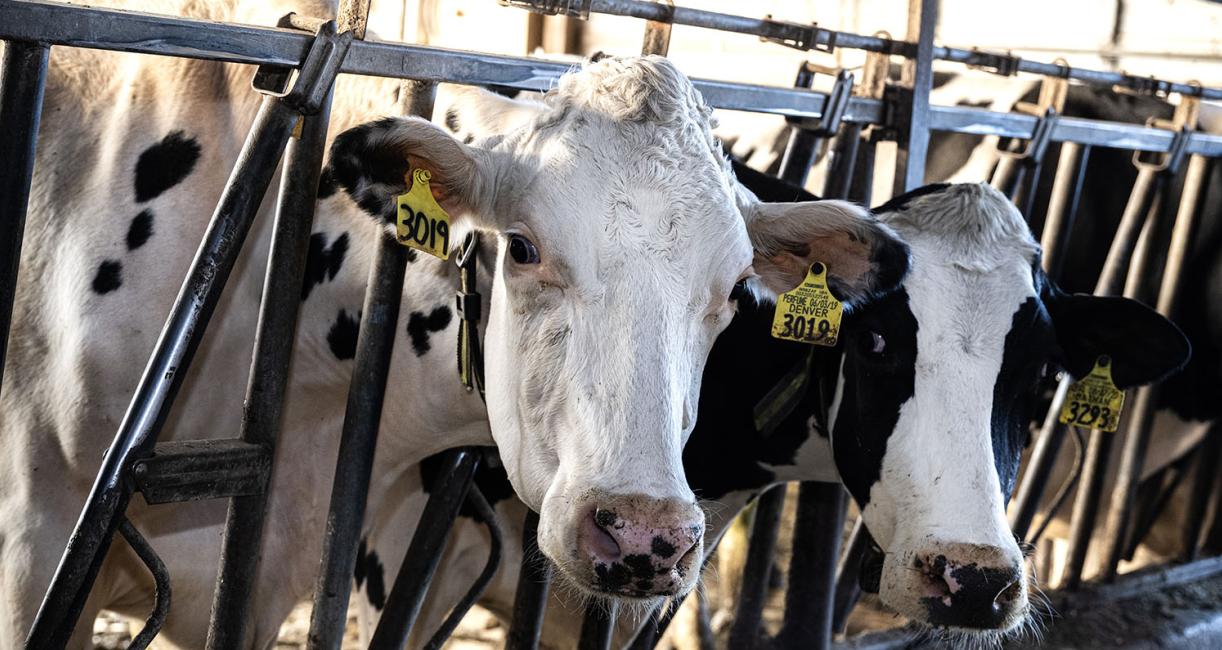
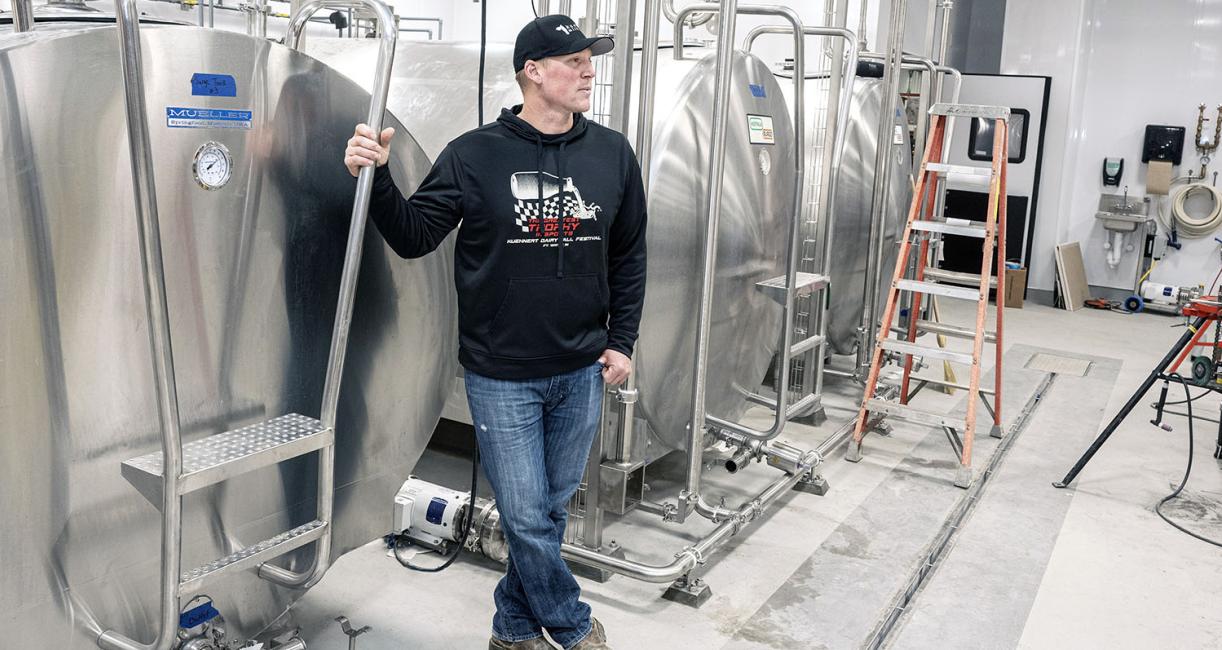

Andrew Kuehnert and Sean Ryan

Andrew Kuehnert

Dairy cows in the milking parlor at Kuehnert Dairy Farms.

Milk tanks facilitate the cooling, storage, or maturing of milk.




Office of Engagement connects university resources with community businesses
By Blake Sebring
March 7, 2024
Sean Ryan loves saying he has Purdue University Fort Wayne’s best job.
For 18 years as the Office of Engagement’s founding director, Ryan has helped business leaders from across the region solve problems and improve results by connecting them with university resources. As he says, there’s a lot of intellectual capital and student capability on campus waiting for opportunities.
“I work with a lot of smart people, and it’s just a matter of finding the right smart person to answer the question that was asked,” Ryan said.
Ryan has a knack for finding answers after being contacted by 1,100 local businesses. More than 500 have decided to work with PFW to take their next step forward, contracting with faculty, staff, and even students who participate through class projects, internships, and research. Ryan’s best advertising is the loyalty of those he works with as many are eager to recommend the office's services to others.
One such relationship started on Feb. 4, 2020, when Andrew Kuehnert called the university. An Allen County institution of more than a century with 750 animals and 300 milk cows, Kuehnert Dairy Farm produces 2,400 gallons of milk daily. The family wanted to diversify, but a necessary United States Department of Agriculture grant required a feasibility study.
The Kuehnerts had a goal for several decades to build the Kuehnert Milk House, a 23,000-square-foot addition offering a restaurant and retail sales of flavored milk, ice cream, cheese curds, and butter. Instead of shipping to a processing facility, the dairy products would be refined and sold on the farm or delivered to local stores and homes. The grant would purchase 200,000 glass bottles.
“We were throwing around ideas and didn’t even know how to start,” Kuehnert said of the feasibility study. “We just thought we’d reach out to the university.”
A return call from Ryan led to a meeting with Wesley Shie, regional director of the northeast Indiana office of the Indiana Small Business Development Center, which is hosted by PFW and located on campus. Ryan also contacted Zafar Nazarov, interim chair of the Department of Economics and Finance, for the feasibility study.
“Andrew said he needed help with something that would save his farm,” Nazarov said. “He was not scared, but knew he needed something different that would increase the revenue stream of the farm in the future and bring additional value to the existing production process.”
It’s been difficult to sleep at night, Kuehnert said, as he and his brother Nathan and their families are risking everything on the investment to keep the farm relevant and fulfill their late father’s dream. If they hadn’t tried this project, Kuehnert said, as a small dairy farm, the business could have failed within 5-10 years.
After working previously on similar projects with Ryan, Nazarov talked weekly with Kuehnert about a potential return on the required capital expenses. Elements of the conversations included looking at the production of milk, herd size, and different temperature variations. They used data analytics to build a report that forecasted many possible scenarios. The study concluded the project was feasible.
“I actually used some of the tools I teach with that I have adopted from my lectures,” Nazarov said. “Some of my students say they won’t use this stuff in the real world. `Oh, you think so!’ They don’t like this approach because they like discussing economic principles without backing them up with data, but I like backing things up with data. That’s what I would call applied statistics. I use this feasibility study as an example.”
Nazarov submitted the report about a year ago. Because Ryan utilized the Purdue Technical Assistance Program, which offers up to 40 hours of state-funded faculty consulting services annually for Indiana businesses, the work was free to the farm.
Essentially, Nazarov took the Kuehnert family dream and gave them validation it could work. Ground was broken in October, and Kuehnert has continued to use the study to apply for more grants.
“He kind of reassured us on what we were looking at doing,” Kuehnert said. “If those numbers hadn’t looked good, we’d have shut down the plans in a minute. The feasibility study really did help reassure us that we were going in the right direction.”
Eventually, the Kuehnert Milk House will employ 10-to-15 workers, hopefully becoming a destination site and as successful as the farm’s 11-year-old fall festival, which averages 30,000 to 40,000 visitors over seven weekends.
“We’re gambling 127 years of family life to do this,” Kuehnert said. “We believe in doing stuff right the first time. We could have done this on a smaller scale, but after two or three years we’d be adding on from there.
“Our first five years are going to be the hardest, for sure. I hope someday my kids will never have to stress the way I do. We’re trying to make something that someday my kids are going to be proud to take over and be a part of.”
And, Kuehnert said, he hopes Ryan and Nazarov visit with their families to see what their work became.




